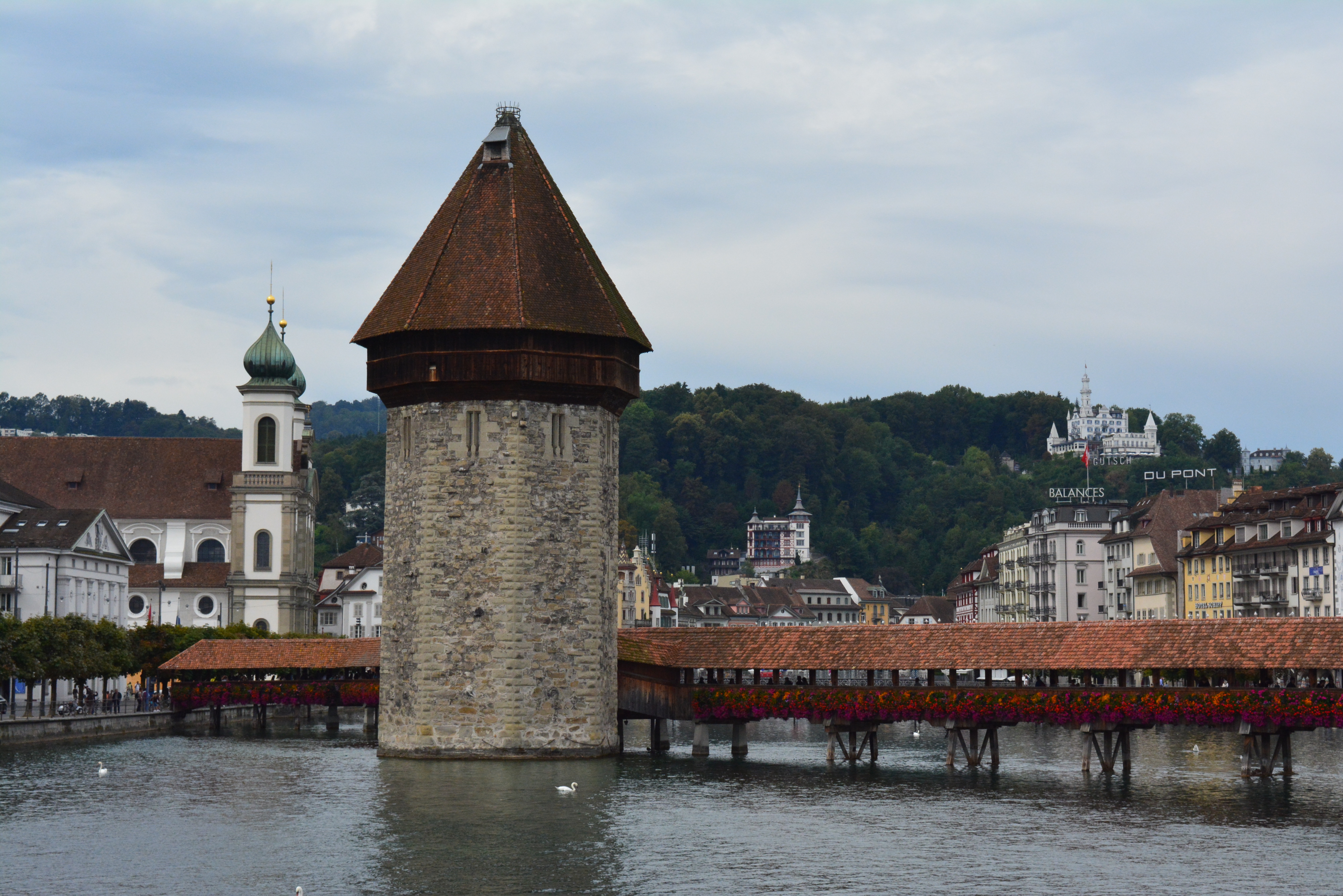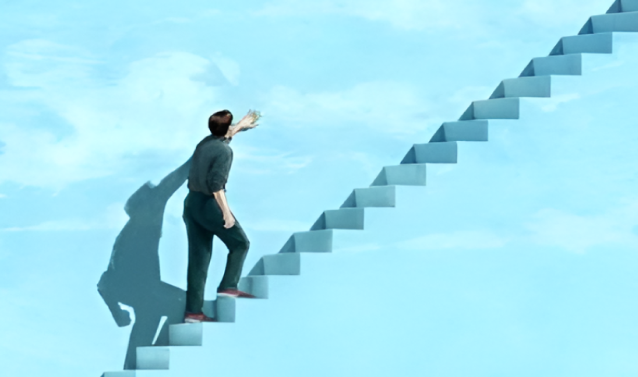

Body of IITR
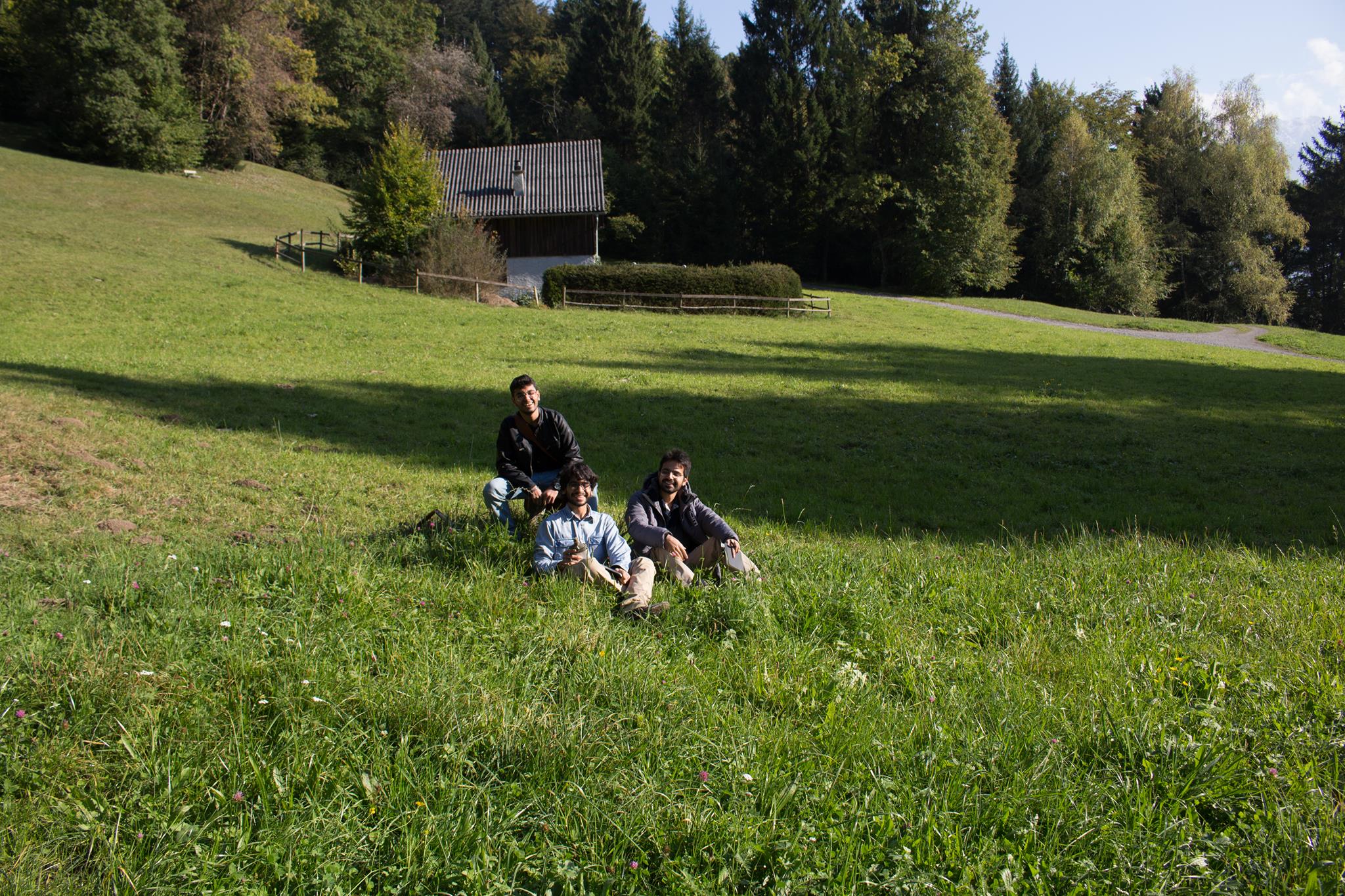
To experience and learn, to learn and apply, to apply and succeed or fail, and hence experience something new altogether. This for me is the instinctive orbit that makes growth modulus. And if the experience is eccentric, days are not dreary and the evenings become laughable.
One of the eccentric experience I had wanted to have since my second year in college was to go on a Semester exchange to Europe. The idea of living a considerable time in a first world country, learn in an evolved curriculum, meet people from around the globe, speak a new language, and grasp where we (the probable cream of Indian education ) stand on an international platform was enticing enough to take this journey.
While the concept of exchange semester is quite popular in IIT-Bombay and Delhi, it is still a nascent trend gathering momentum in Roorkee. To make it happen, you apply at a University abroad (that has such an MOU signed with IIT-R) through a bureaucratic channel that will take around two months.
The exchange application is supported with grade sheets of previous semesters and internship certificates. This has to be supported with a comparative list of all the courses that you’ll be taking in the applying university with the ones that home university is hosting in the particular semester. Course descriptions have to be on the same line more or less. The Indian credit system is supposedly more strenuous than the ECTS system in Europe, so for 20 credits that we were supposed to score in Roorkee in autumn semester of fourth year we had to cover 30 ECTS at HSLU.
This set of application is first passed by the Exchange coordinator in your respective department. This is forwarded to the Head of Department who then forwards it to DAPC committee for scrutiny of credits etc. If forwarded by the DAPC the application moves swiftly to further tables. The HOD then sends it to the Dean of Academics who then sends it to the Dean of International Affairs. It is from here that the application is sent to the International Office of foreign university. Then, if the foreign university is convinced with your CV and letter of intent you’ll get a letter of acceptance in the next month. In the end you have to obtain a No-objection certificate from Dean of Academics and Dean of Student’s Welfare.
After getting all these signatures you have to breathe and congratulate yourself, get the finances in place and move forward to obtain VISA for that respective country. Flight tickets. Goodbyes. Take off.
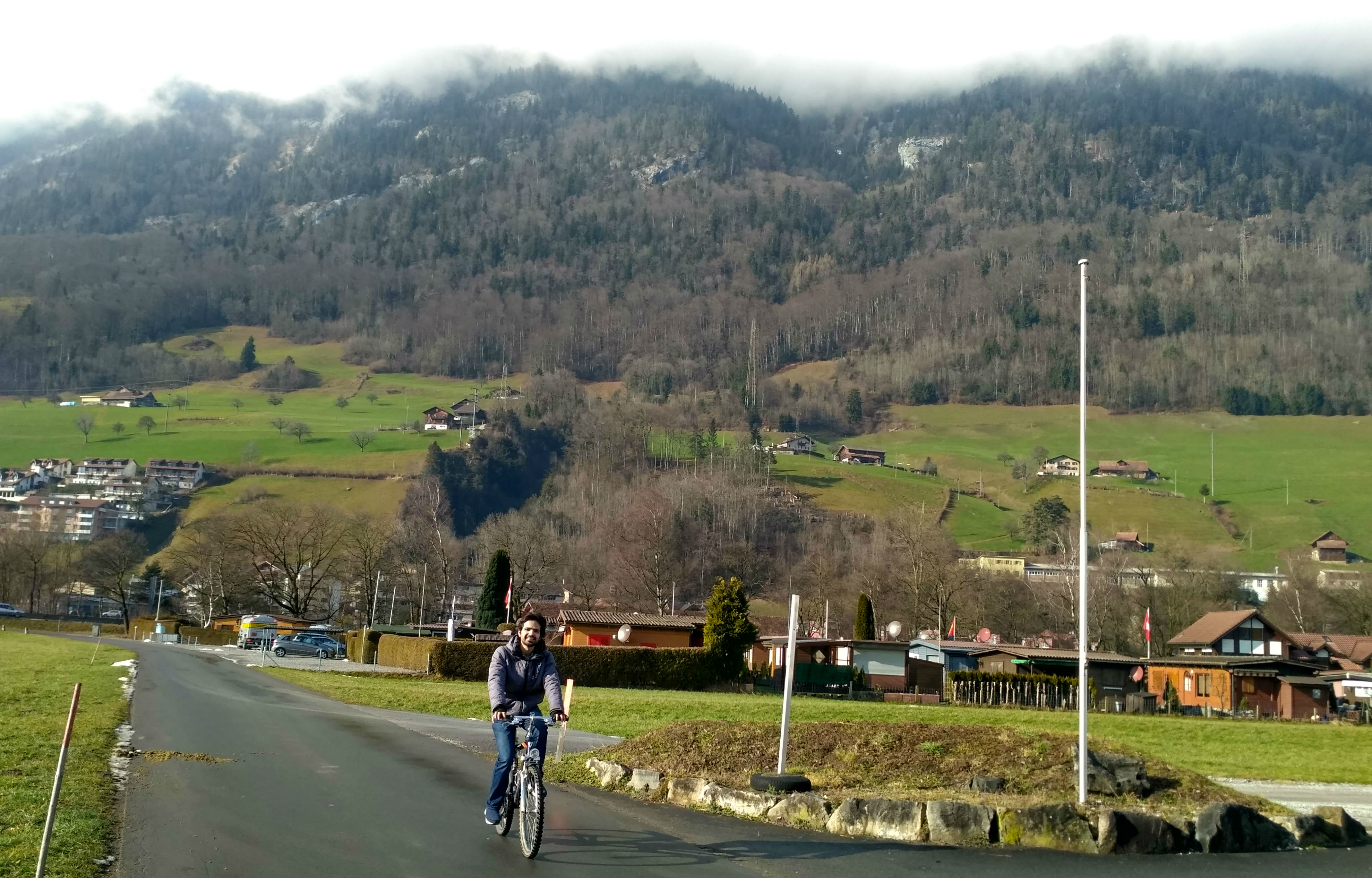
We (me, Deovrat and Kshitij) applied together for Hochschule Luzern, Switzerland and were ecstatic to get our acceptance e-mail on 18th May, 2016 for the coming Fall Semester. (September ’16 – February ‘17). The dogs of CS-169, Rajendra Bhawan had been unleashed to waggle tails for European blondes, hike along scenic Alps, bootleg through Roman alleys, and growl Grützi at every other firang dog that passed through.
We flew on 2nd September. Their international office had helped us with getting affordable accommodation and all the Visa documents. The reception was warm - an orientation program that included basic German classes, hikes, city tour and an inter-cultural workshop had been chalked out for all the 70 odd students making an exchange in various departments of the University.
The classes begun from 21st September and hence came forward the clear picture of why Switzerland tops the Global Competitiveness Ranking every successive year. While in India people jump to college directly after schooling, Swiss students join an office or industry as an intern for two to three years to know their trade, which is followed by diploma or graduation. So, my classmates were all three or four years older and with much substantial knowledge.

30 ECTS meant 8 courses - 2 Major modules (12), 2 Related Modules (6), 3 Minor Modules (9), and a language course(3).
One of the minor modules was called ‘Swissness’, which covered everything about their history, culture, geography, governance, and industries. It was compulsory for all the exchange students. This module and Deutsch language course was an interesting experience as the lectures were very interactive and student body was a diverse concentration of cultures from everywhere. A particular lecture on the democratic structure of Switzerland was followed by a discussion between me, Sebastian (from Dublin), Katja (from Vienna) and Andrew (from California) about our own Parliaments and voting rights. We ended up in a bar competing who would get their bottoms up done faster. Indians are pro. RP is bliss.
The other six modules were all in the domain of architecture. The related modules were a compliment for the personal project that an individual is designing or researching about in his major module. I worked on three different design projects, two case studies and a research paper through the semester. Every week for every project a 90 minutes slot was fixed with the professor of that particular module. The professor has 12-16 individual projects under him or 3-4 groups if it’s a group project. The personal discussions were very intensive. I grasped that much of the learning is imbibed when one discusses his progress week after week with his mentor, in a tuition kind of methodology. Those 90 minutes were a dreadful fear through the semester, because you cannot subterfuge a person who has been following your work from the very beginning. A lot of homework had to be done so that I have enough substance for making a quality discussion. Snow falls were missed and all nighters were adored a lot of times.
September to December went from week to week managing work, time, and food. I got a bit frustrated for not being able to live the Euro-trip I had imagined. One weekend in November, I decided to close my laptop and go to Venice for Bienalle. The intriguing Italy of kings and merchants, a city floating on water, narrow alleys leading up to grand piazzas and majestic Castles. It was all fun and smoke, but I was choked with unsurmountable work for the weeks that followed. From Christmas to New Year were holidays half spent sleeping and half in the mist of French Alps. January was lined up with exams, final presentations and critique.

Swiss folks, like their climate, are usually very cold. They have evolved confined to each other in small communities that thrived in valleys and lake sides surrounded by mountains. Being a major tourist destination, the locals have seen a lot of foreigners all their lives and somehow have grown indifferent to their presence. While serving the visitors with all hospitality and services, they remain closely knit in their own inner circles. A greeting in Swiss German is the password to get them talking, but don’t try to get too friendly. They take time to absorb a newbie in their life.
Although the popular notion of being a honeymoon destination still holds, it is a very narrow view for a country overshadowing major global players in technology, economy and environment preservation. A landlocked small country between major powers like France, Germany, Italy and Austria, it is with great resilience and determination that they have been able to hold on to their idea of Swiss conservatism and national identity. Swiss German is a very different dialect from German that even the Germans find difficult understanding. Being in the center of Europe and being filthy rich courtesy to the Jews that developed the banking system to rope in all the gold, the country has had a rich past in art, architecture and medieval towns. Moreover, their neutral stand and powerful defense has been able to preserve these treasuries through the dark ages of World War.
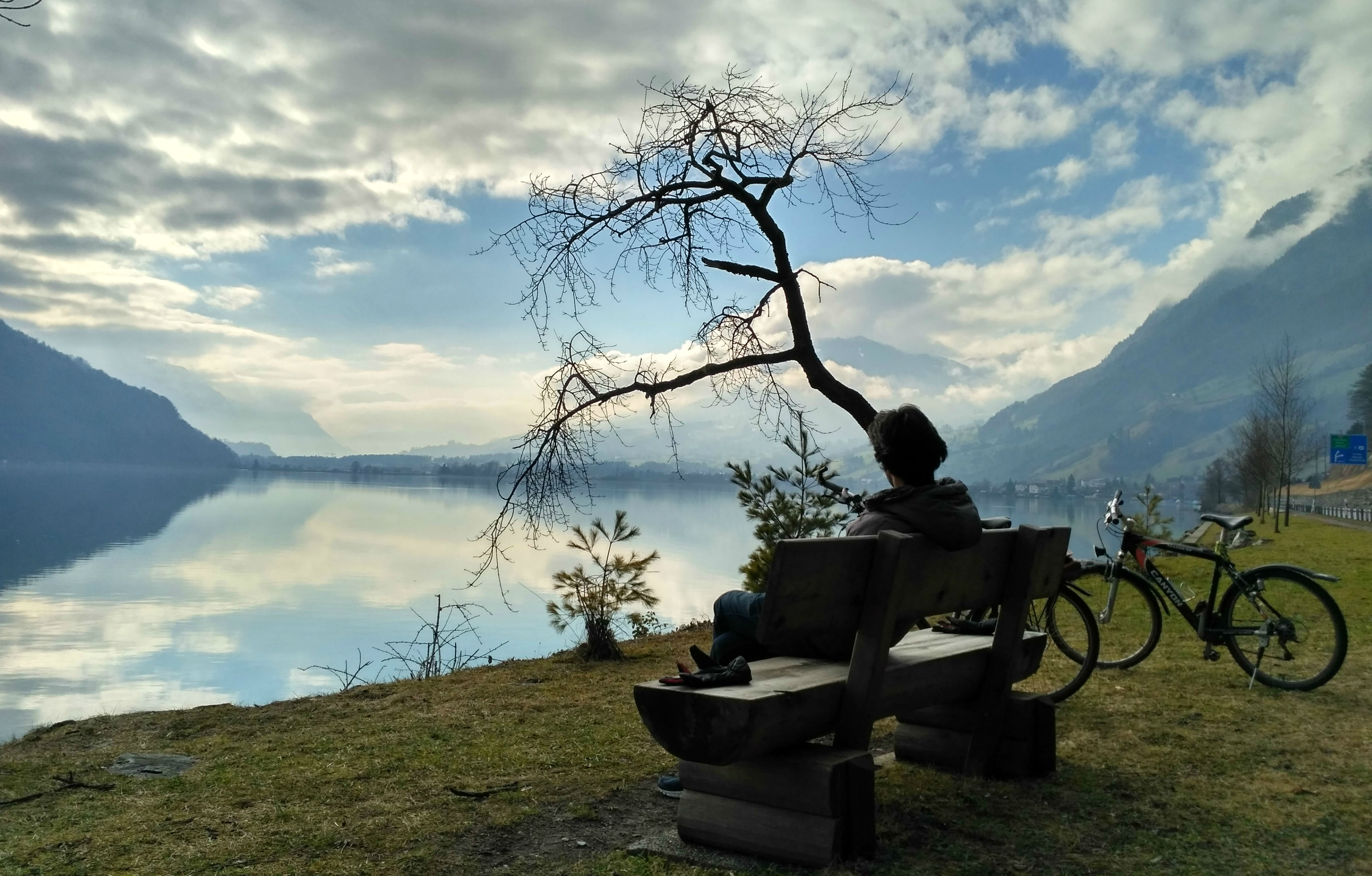
In spite of being conceited and snobbish like a goblin, the Swiss have sentiments. And all their emotional nerves are attached to some pounding heart in their wrists. The people have an OCD with time skills. Being late was never accepted. Being an Indian was a major joy for the fun we can have in recklessness. The food they eat is no food at all. Cheese, chocolate and bread are supplements for us, main course for them. ‘Swiss Watching’ by Diccon Bewes is much recommended book to know about Switzerland and its people.
But in all this time and amidst all those clones of perfect sapiens, I made some good friends. Lee, Axelle, Juan, Viki, Andrew, Rhys, Jamie, Toby, Michael, Reem, Sebastian, Sam, Manuelle were delightful humans to remember.
Now, I am much excited for my last year in R-land. The campus has a different vibe, much progressive and less fearful. With every new notice there is a relentless cry to break away from ever withholding past. It’ll be another eccentric experience to meet girls whistling in Main building lawns coming back from BusTea at 4 o’clock in morning.
Ciao.
